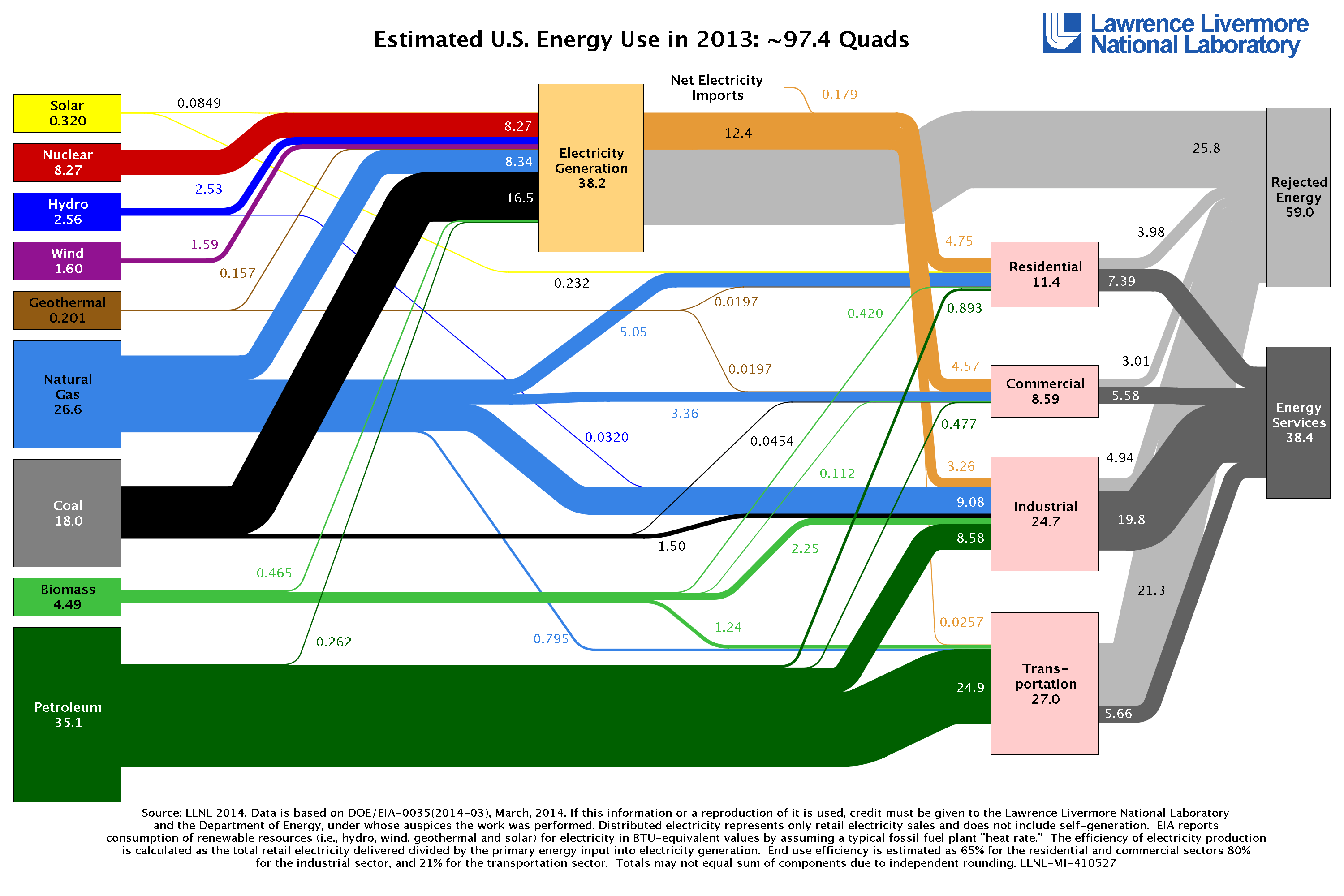
Uploaded on 2015-11-14 by DCWan
2) Different industries have a different dominant fuel. For example, 40% of the fuel used in industry is natural gas. However, of course the dominant fuel used in transportation is oil, comprising nearly 92%. For all the talk of electric cars and other electric transportation, electricity is 0.2% of the fuel mix. In other, electricity comprises of nearly 50% of the fuel mix used in "Other". 3) One of the major things I would do is to improve the consumption of energy. As it's well known, the best way to conserve energy is not to use it at all. An improvement in efficiency in all areas would significantly cut down on energy consumption. One of the prime examples is electricity generation. Since the efficiency of energy conversion from different fuels is only 40% (in which I contest, because a Lawrence Livermore found that the efficiency of electric generation is about 32%. See [link][1]), it would be best to improve the energy conversion to further cut down on fuel and energy consumption. This can be seen in the diagram as all of coal, the 3rd most dominant fuel, goes to electricity generation. Another example that would go a long way of reducing energy consumption is to reduce the reliance on oil for US transportation purposes. Policies to reduce that would include encouraging biking to work, investments in public transportation networks, and efficiency in the transportation of goods cross-country. I believe electric cars are the wrong approach as our electricity are still coming from rather dirty fossil fuels. More than 44% of the electricity comes from the usage of coal followed by natural gas. Until there's a lesser use in coal **and ** a stronger emphasis in improvement in energy efficiency, electric cars for transportation is the wrong way to improve consumption of energy resources. [1]: https://flowcharts.llnl.gov/content/energy/energy_archive/energy_flow_2013/2013USEnergy.png